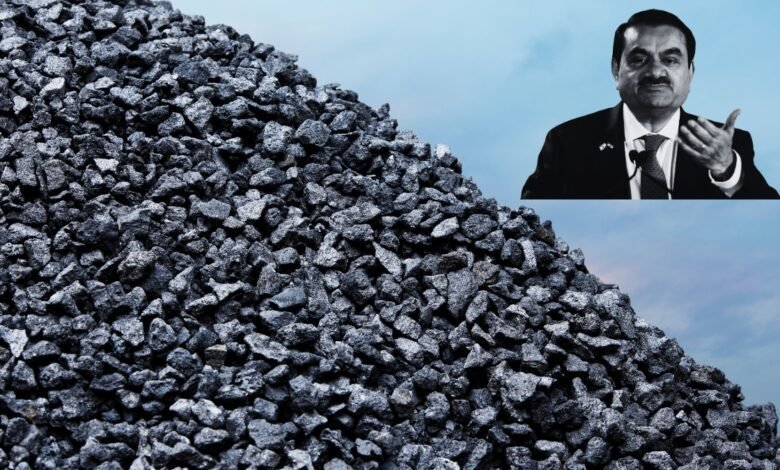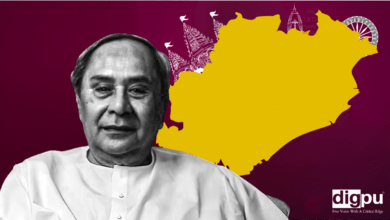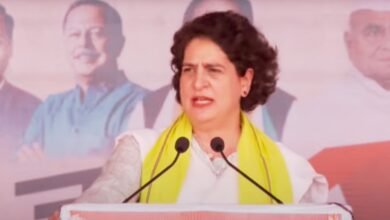Financial Times flags fresh allegations of overpricing of coal imports and profiteering by the Adani Group, calls Gautam Adani “Modi’s Rockefeller”
The report divulges how Adani used devious "offshore intermediaries" to import USD 5 billion worth of coal at rates double the market price, spiking the electricity bill and fuel charges for the average Indian consumer.

On October 12th, the famed British daily business newspaper Financial Times tore into Gautam Adani, trying to establish how the controversial billionaire conjured excessive profit out of thin air by “inflating fuel costs that lead to millions of Indian consumers and businesses overpaying for electricity.”
The report also labels Adani as “Modi’s Rockefeller” by illustrating how the mogul’s fortunes have compounded by leaps and bounds and that it has emerged as “India’s biggest private thermal power company and biggest private port operator” since Prime Minister Narendra Modi’s rise to power in 2014. The Adani group has nulled the investigative report by calling it an “old, baseless allegation and a clever recycling and selective misrepresentation of publicly available facts and information.”
The FT report does appear as an extension of the previous investigative articles against Gautam Adani published by the Hindenburg and the OCCRP (Organized Crime and Corruption Reporting Project). However, this time, the attack looks more focused and head-on than anytime before.
What has the report divulged?
After monitoring 30 shipments of coal from Indonesia to India by an Adani company over 32 months between 2019 and 2021, the Financial Times has exhumed three key points via its investigation.
i) Hyper-inflating the prices of coal imported from Indonesia: Through its investigations, the FT alleged how Adani, in collaboration with shady offshore entities, had been artificially inflating coal prices in a bid to profiteer more than a 52% profit margins through “over-invoicing” in a business domain that does not usually yield much profit.
The FT clarified its claim by explaining how the prices for the same coal in import records (in India) were significantly higher than what was written in the corresponding export declaration (in Indonesia). Leveraging on this, Adani allegedly inflated the value of the coal shipments by a whopping USD 70 million!
The FT wrote, “The Indonesian port of Kaliorang in East Kalimantan carrying 74,820 tonnes of thermal coal destined for the fires of an Indian power station. During the voyage, something extraordinary occurred: the value of its cargo doubled. In export records, the price was USD 1.9 million, plus USD 42,000 for shipping and insurance. On arrival at India’s largest commercial port, Mundra in Gujarat, run by Adani, the declared import value was USD 4.3 million.”
ii ) Purchasing the same coal from devious offshore entities at higher prices: The FT, in its report, has identified three offshore companies named Hi Lingos in Taipei, Taurus Commodities General Trading in Dubai, and Pan Asia Tradelink in Singapore, that have profiteered in a shady pattern over the last few years. Coincidentally, the names ‘Hi Lingos’ and ‘Taurus’ had already been featured in the OCCRP report published last month.
The FT discovered that while the Adani group declared an average price of USD 130 per tonne for 42 million tonnes of coal supplied by its own operations in the most recent financial year, it purchased a whopping 31 million tonnes of coal (from its three middlemen) at the average price of USD 155 per tonne, a “20% premium worth almost USD 800 million!”
These three intermediaries were:
- Chang Chung-Ling, a Taiwanese businessman and owner of the company ‘Hi Lingos,’ was previously identified as “a potentially controversial owner of Adani stock.”
- Nasser Ali Shaban Ahli and Mohamed Ali Shaban Ahli, operators of ‘Taurus Commodities General Trading’ based in Dubai, had a 13.5% free float in the shares of Adani Group till 2019.
- The third was a company based in Singapore named ‘Pan Asia Coal Trading,’ from which Adani bought 1.1 million metric tonnes of coal at a 30% premium rate!
The FT deliberated that even if the quality of the imported coal differed, Adani appears to have supplied itself with coal at exorbitant rates. It wrote, “For the 508 shipments with a calorific value where Adani companies were listed as both supplier and importer, most — 87% — were priced higher than the closest Argus benchmark, at a median premium of 24%.” (Argus is an independent provider of global energy price benchmarks.)
iii) Indian consumers forced to pay higher electricity bills: A higher cost for coal import implies a significantly higher cost of electricity for us (consumers), who are the final bearers of unethical profiteering. The FT has, in its report, flagged the ditto claim previously made by the Gujarat Congress regarding the state power utility Gujarat Urja Vikas Nigam Limited’s (GUVNL) excess payment of Rs. 3,900 crores (over five years) to Adani under the influence of overinflated coal prices.
To explain the essence of the matter, we must concise the report. Suppose Indonesia supplied the coal to Adani, and the alleged middlemen say for Rs. 100 per tonne. The same coal was imported at the Adani-run Mundra port for Rs. 200 per tonne. Finally, the electricity generated from this was sold to us (the consumers) at Rs. 205 (cost plus) adjusted per tonne.
It must be stated that the Supreme Court had, in one of its hearings, vindicated the Adani group of the charges laid by the Directorate of Revenue Intelligence (DRI) dealing with “the issue of overvaluation in the import of coal” by 40 importers (ten of which had a direct nexus with Adani) in 2016. It is rather uncanny to notice how such esteemed entities in international business have been targeting the Adani group since the groundbreaking report by Hindenburg.
Nevertheless, the fact that the GUVNL reached out to Adani over the issue of ‘overinflated coal prices’ substantiates the FT report’s claims to an extent. This report can also create a political backlash ahead of the 2024 general elections, as gibes like “Modi’s Rockefeller” and “Modi-Adani bonhomie” might infuriate the commoners against the government as the allegations about the Prime Minister acting under the influence of crony capitalists and oligarchs have become too pronounced to ignore.







